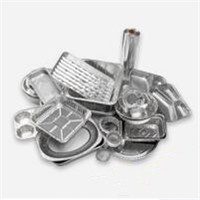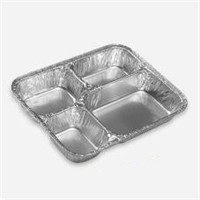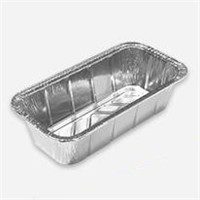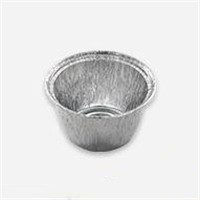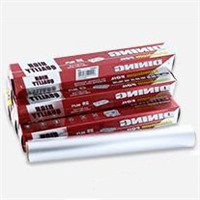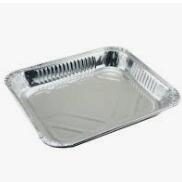Aluminum containers offer several advantages and have numerous uses across various industries and applications. Here are some of the advantages and common uses of aluminum containers:
Advantages of Aluminum Containers:
- Lightweight: Aluminum is a lightweight material, making it easy to handle and transport. This characteristic is particularly beneficial for packaging and shipping purposes, as it reduces overall weight and associated costs.
- Corrosion-resistant: Aluminum naturally forms a protective oxide layer when exposed to air, which helps prevent corrosion. This corrosion resistance is essential for storing and packaging various products, including food, beverages, pharmaceuticals, and chemicals.
- Recyclable: Aluminum is highly recyclable, meaning it can be recycled repeatedly without losing its quality. Recycling aluminum containers saves energy and reduces the need for extracting and processing new raw materials, making it an environmentally friendly choice.
- Barrier properties: Aluminum has excellent barrier properties, such as resistance to light, oxygen, moisture, and bacteria. These properties help preserve the freshness, flavor, and quality of products, especially in the food and beverage industry.
- Thermal conductivity: Aluminum has high thermal conductivity, allowing it to heat up quickly and cool down rapidly. This property makes aluminum containers ideal for applications where temperature control is critical, such as in the food industry for cooking, baking, and reheating purposes.
Common Uses of Aluminum Containers:
- Food and Beverage Packaging: Aluminum containers, such as cans, trays, and foil, are widely used for packaging food and beverages. They provide a protective barrier, prevent spoilage, and maintain the product’s integrity. Aluminum cans are commonly used for carbonated beverages, while trays and foils are used for various food items.
- Pharmaceuticals: Aluminum containers are used for packaging pharmaceutical products due to their ability to protect against moisture, light, and oxygen. They are commonly employed for tablets, capsules, creams, and ointments.
- Cosmetics: Aluminum containers find applications in the cosmetics industry for packaging creams, lotions, deodorants, and aerosols. Their lightweight nature and corrosion resistance make them an ideal choice for such products.
- Industrial and Chemicals: Aluminum containers are used for storing and transporting industrial chemicals, oils, lubricants, solvents, and paints. Their corrosion-resistant properties make them suitable for such applications.
- Household and Catering: Aluminum foil is extensively used for various purposes in households and catering services. It is used for wrapping food, covering dishes, and lining cooking utensils to enhance heat distribution and facilitate easy cleaning.
- Automotive: Aluminum containers are used for automotive applications, such as engine components, heat exchangers, and fuel tanks. Aluminum’s lightweight and corrosion-resistant properties contribute to improved fuel efficiency and durability in vehicles.
It’s worth noting that the specific uses and advantages of aluminum containers may vary depending on the industry, product requirements, and local regulations.



